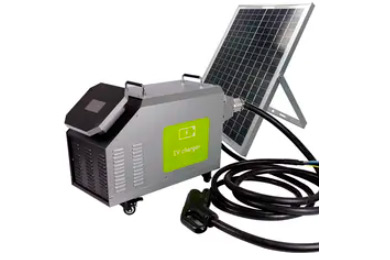
With the increasing popularity of electric vehicles (EVs) worldwide, the establishment and management of charging stations in residential quarters have become a major challenge. This article explores the various obstacles faced in building and operating these charging stations, along with potential solutions to overcome them.
The lack of proper infrastructure is one of the primary difficulties in establishing charging stations in residential areas. Many older residential buildings were not designed to accommodate the increased electrical load necessary for these stations. Retrofitting these buildings to support charging infrastructure can be costly and complex.
Furthermore, the existing power grid in residential quarters may not have the capacity to handle the simultaneous charging of multiple electric vehicles. This leads to power outages or slow charging, frustrating EV owners and discouraging others from adopting electric vehicles.
The high cost of installing charging stations is another significant hurdle. The expenses include not only the installation of charging infrastructure but also the procurement of charging units, maintenance, and ongoing electricity costs. These financial burdens can deter private investors or building owners from establishing charging stations in residential areas.
Moreover, the installation of charging stations provided by EV charging station suppliers in existing buildings often requires modifications to electrical systems, parking lots, or garages. These alterations come at an additional cost, which may be beyond the budget of residential communities or homeowner associations.
Another challenge is the lack of technical compatibility and standardization among different electric vehicle models and charging equipment. Some charging stations may only be compatible with specific vehicle brands or models, limiting their usefulness to a broader range of EV users.
In addition, different regions or countries may have varying standards for EV charging infrastructure, including plug types, power levels, and communication protocols. This disparity can hinder the development of a unified and efficient charging network, particularly in residential areas where standardization is crucial for widespread adoption of electric vehicles.
Building and managing AC EV charging stations in residential quarters pose several challenges, including inadequate infrastructure, high costs, and technical compatibility issues. Addressing these difficulties requires collaborative efforts from governments, residential communities, and industry stakeholders.
To overcome infrastructure limitations, government policies should encourage the installation of charging stations and provide incentives for building owners to retrofit existing structures. Financial support in the form of grants or subsidies can alleviate the cost burden associated with installing and operating charging stations.
Standardization efforts must also be intensified to ensure interoperability and compatibility across different EV models and charging equipment. Harmonizing regulations, plug standards, and communication protocols will facilitate the widespread adoption of electric vehicles and the development of a reliable charging infrastructure in residential areas.
By overcoming these difficulties, we can foster the growth of electric vehicle adoption and create a sustainable future for transportation.